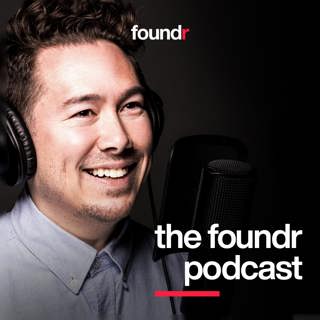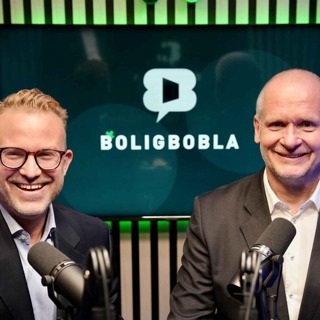
304: Alex Osterwalder On Why Products, Technology, And Price Aren’t Enough To Keep Your Company Competitive
Alex Osterwalder is primarily known for developing the Business Model Canvas, a template that helps startups develop and document new or existing business models. In this interview, Osterwalder shares his best insights into the world of business models—ideas that are especially applicable now as entrepreneurs try to launch businesses during Covid-19. He explains why products, technology, and price alone aren’t enough to keep your company competitive. Osterwalder also breaks down the innovative models that Apple, Netflix, and Nintendo have used to become industry leaders (and why even these behemoths aren’t safe from disruption). We also get a sneak peek into Osterwalder’s latest book called “The Invincible Company.” Not only does it contain an entire library of business models for companies of all sizes, but it also provides guidance on how startups can continuously reinvent themselves to stay ahead of the curve. If there’s any other content you’d like to see that would be valuable to you during this time, please don’t hesitate to reach out at support@foundr.com. Key Takeaways How Osterwalder came to study business models in graduate school Insight into Osterwalder’s latest book, “The Invincible Company” Why companies can’t compete on products, technology, and price alone (and why your business model can provide the ultimate competitive edge) The scalability of business models Why companies need to transcend industry boundaries The reason why Osterwalder urges entrepreneurs to test before they build How Apple, Netflix, and Nintendo are prime case studies of innovative business models in action—but why even they’re not safe from disruption Osterwalder’s stance on the “magic bullet” when it comes to business models (hint: there isn’t one)
19 Mai 20201h 1min

303: Ballsy’s Adam Hendle Talks Community Engagement, Customer Acquisition, And Leaning Into The Pandemic
Adam Hendle’s company, Ballsy, is eye-catching and humorous, which are some of the most defining characteristics of the brand. But that doesn’t mean he doesn’t take his business seriously. On the contrary, Hendle is obsessed with producing the highest quality products and finding creative ways to take his company to the next level. This is exactly how he brought in over $10 million in sales in just two years. And now, during the Covid-19 pandemic, he is still finding opportunities to grow. In this podcast episode, Hendle discusses his unique approach to everything from community engagement to customer acquisition. He also opens up about his most challenging moments in business and explains how he finds opportunities in unexpected times and places (such as during a pandemic). This is a conversation you don’t want to miss! If there’s any other type of content you’d like to see that would be valuable to you during this time, please don’t hesitate to reach out at support@foundr.com. Want some training on ecommerce? Check out our free masterclasses: FREE Masterclass: Start a Profitable Online Store (In 12 Weeks or Less) FREE Masterclass: Discover the “5 Core Drivers” Behind Today’s Fastest-Growing 7-Figure Stores Key Takeaways What’s changed with Ballsy since the last time we talked to Hendle An overview of Ballsy’s growth from a sales, marketing, and team perspective How Covid-19 gave Hendle’s brand an opportunity for growth The approach Hendle took to lean into customer demand for subscriptions and stocking up on products How Ballsy stays engaged with its community in fun and creative ways A deep dive into one of Ballsy’s most unique customer acquisition channels: podcast advertisements Why it’s important to test your assumptions Insight into some of the biggest business obstacles Hendle has had to face Why Hendle has Ballsy’s influencers on a monthly retainer The reason why product quality is paramount to the Ballsy brand
12 Mai 202053min

302: Serial Ecommerce Entrepreneur Rory Boyle On How He Survived (And Thrived) During The Pandemic
All three of Rory Boyle’s ecommerce businesses were negatively impacted by Covid-19. But thanks to his strategic—and insanely fast—pivot, two of his companies are now making double the revenue they were before and one (which historically made most of its money through conferences) is still pulling in around 50% of what it used to make. How did Boyle recover so quickly from the pandemic? In this interview, we were lucky enough to get a detailed analysis around his thought process and strategic decisions. Boyle takes us through how he shifted his sales and marketing tactics (which still includes getting on the phone) and explains how he’s using this time as an opportunity to give back to his community and customers. He also shares tons of tips around scaling sales efforts, the art of cadence emails, and other tactics you can use to grow your revenue. If there’s any other type of content you’d like to see that would be valuable to you during this time, please don’t hesitate to reach out at support@foundr.com to let us know. If you need want some training on ecommerce, check out our Free Masterclasses: Learn How You Can Start a Profitable Online Store (In 12 Weeks or Less)Discover the “5 Core Drivers” Behind Today’s Fastest-Growing 7-Figure Stores Key Takeaways The origin stories of Hampers With Bite, Promotions Warehouse, and Snacks With Bite What Boyle means when he says to “control the controllables” How COVID-19 impacted all 3 of Boyle’s businesses—and how he pivoted all of them at breakneck speed The approach Boyle is taking to sales and marketing during the pandemic (and why his team is still hopping on the phone to talk to customers) Why Boyle believes every ecommerce entrepreneur needs to be thinking about the next step instead of focusing on current performance How Boyle is giving back to his community and customers How he’s planning around stocking challenges, especially for the upcoming holidays A super deep dive into Boyle’s best sales tactics and strategies Why Boyle would encourage entrepreneurs to launch their business in today’s climate
11 Mai 202057min

301: 8-Figure Ecommerce Founder Reveals His Best Insights For Ecommerce Entrepreneurs Struggling Through Covid-19
Today, we’re excited to share another valuable interview to help you overcome business challenges during the Covid-19 pandemic. We had the opportunity to pick the brain of Ashwin Sokke, the founder of WOW Skin Science. His global 8-figure skincare and haircare business is extremely popular in India and across the U.S., and it has been a top-selling brand on Amazon for the last four years in those countries. In this interview, Sokke shares how his company dealt with the impact of Covid-19 which shut down half of his business for several weeks. For businesses who are going through similar pains, he provides incredible insights across many topics—from how to communicate with customers (he believes we should be sending them more emails and texts during this time) to getting creative with your marketing tactics (remember giveaways?). Sokke even digs down into the nitty gritty and breaks down his thoughts on subscription models, ad investments, and SKUs. We believe this conversation will be valuable for any entrepreneur to listen to, especially those with ecommerce businesses. If there’s any other type of content you’d like to see that would be valuable to you during this time, please don’t hesitate to reach out at support@foundr.com to let us know. If you need want some training on ecommerce, check out our Free Masterclasses: Learn How You Can Start a Profitable Online Store (In 12 Weeks or Less)Discover the “5 Core Drivers” Behind Today’s Fastest-Growing 7-Figure Stores Key Takeaways How Sokke got into the health and beauty space The path to growing WOW Skin Science in India and the U.S. and becoming a top-selling brand on Amazon Why Sokke develops all of his products from scratch A glimpse into the company’s incredible numbers: 8-figure revenue and 370% growth in the U.S. last year The impact that Covid-19 had on Sokke’s global company Why Sokke believes companies should be sending more emails during this time (and how to be strategic about it) Why giveaways have been a successful tactic during Covid-19 An overview on a winning stock keeping unit (SKU) Sokke’s thoughts on how to win with subscription models The best advice Sokke can offer to the community during Covid-19
5 Mai 202055min
![300: [Special 300th Episode] Rich20Something’s Daniel DiPiazza And Foundr’s Nathan Chan Dive Deep Into the World of Instagram](https://cdn.podme.com/podcast-images/A57FEEC6A978BF2E6CBFC3F723D2A256_small.jpg)
300: [Special 300th Episode] Rich20Something’s Daniel DiPiazza And Foundr’s Nathan Chan Dive Deep Into the World of Instagram
The latest installment of the Foundr podcast is a landmark—our 300th episode! So to mark the occasion, we’ve got something a little different for you today. Daniel DiPiazza, the founder of Rich20Something, was on the cover of Foundr Magazine last year, and today, he returns to Foundr to “reverse interview” our own CEO, Nathan Chan, ahead of the relaunch of Foundr’s beloved Instagram Domination course. Together, Nathan and Daniel share the details of how they each found success on Instagram for their respective brands. They also explore Instagram’s algorithms, how it compares to other social media platforms, and the right way to use this powerful tool during the Covid-19 pandemic. Plus, they swap stories about their friendly competition, their time in the “Motivation Mafia,” and more! If you want to learn more about our remastered Instagram Domination course when it launches, sign up for the Free VIP waitlist here (Get a FREE Lesson!). Key Takeaways The reason for this special “reverse interview” How Nathan and Daniel got started on Instagram and are still finding success with the platform today Why Instagram is the most powerful tool for both personal branding and ecommerce A glimpse into Instagram’s algorithms and metrics Why Instagram needs to be about more than just follower numbers How Instagram can be a powerful tool through the current pandemic A throwback story about the “Motivation Mafia” Why Nathan would still pick Instagram as his platform of choice if he were to start a new company today A comparison of Instagram vs. YouTube How Daniel’s Instagram account helped him seal a six-figure book deal The question that stumped Nathan (and why he prefers to focus on the present) Why Daniel owes Nathan a trip to San Sebastián
29 Apr 20201h 10min

299: From $0 To $20M In 2 Years: How Happy Skin Co. Founder Dylan Mullan Went Viral
Dylan Mullan took an extremely unconventional path to entrepreneurship. While he was in school, Mullan was convinced he wanted to be a lawyer, until he started taking classes at university and realized that he hated them. After that, he spontaneously took an acting course and spent almost five years as an actor. It was eventually a desire to have more control over his life that led him and his business partner to launch Happy Skin Co together. Through a mixture of hard work, strategic decisions, and a deep investment in understanding their target customer, Mullan managed to grow his at-home hair removal business from $0 to $20 million in just two years. In this interview, Mullan maps out exactly what this path to explosive growth looked like. He breaks down his approach to everything from market research to Facebook ads and explains why mindset is ultimately an entrepreneur’s most valuable tool. If there’s any other type of content you’d like to see that would be valuable to you during this time, please don’t hesitate to reach out at support@foundr.com to let us know. Key Takeaways The path from aspiring lawyer to aspiring actor, and how Mullan eventually wound up in the world of entrepreneurship A look into Happy Skin Co’s early days, from long nights of planning to packaging products in Mullan’s living room with friends and family The turning points that catapulted the company from $0 to $20 million in 2 years How Mullan approached market research and influencer marketing in the early days What the impact of Covid-19 has looked like for Mullan and his team, and the new opportunities it has opened up Mullan’s best advice when it comes to creating profitable Facebook ads An overview of the Happy Skin Co product development process and a sneak peek into what’s next How to deal with industry copycats Why Mullan is a huge advocate for visualization and believing in yourself
21 Apr 202055min

298: Serial Entrepreneur Josh Snow’s Approach to Influencers, Recurring Revenue, and Paid Ads During a Pandemic
Josh Snow always finds ways to thrive in difficult situations. Growing up, his family didn’t have a lot of money, and he wanted to help them cover basic expenses. So Snow taught himself how to create websites at his local library, which is how he stumbled into entrepreneurship. He eventually took that knowledge and built a software company from the ground up, which he sold by the age of 21. Now Snow runs multiple successful businesses—with the most prominent one being his nine-figure teeth whitening business, Snow. And he’s still finding ways to overcome adversity. Just as most businesses have been impacted by COVID-19, Snow also took a huge hit in terms of sales, with its conversion rates cut in half when the pandemic first emerged. However, by making fast, strategic changes, Snow got his company through the temporary setback and is today seeing higher-than-average sales on its site. In this interview, Snow shares exactly how he made the necessary changes to his business. He also provides advice to other online businesses on how to get through this time by adjusting everything from your subscription model to your approach to influencer relations strategy. If there’s any other type of content you’d like to see that would be valuable to you during this time, please don’t hesitate to reach out at support@foundr.com to let us know. Key Takeaways How Snow stumbled into entrepreneurship through necessity The journey to selling his first software company at the age of 21 Why Snow believes adversity gives you the opportunity to pause and reprioritize The inspiration behind Snow, and how it grew to be a nine-figure business How the company has been affected by COVID-19, and the changes Snow made to help his business bounce back and make more sales than before the pandemic Snow’s recommendations on how to adjust your subscription products, influencer relations, and paid ads strategy during this time The importance of evolving and meeting your customer where they’re at Why Snow believes you have to be an “everything” person if you want a successful business Advice on using Shopify vs. funnels The choice between hunting rabbits vs. elephants (metaphorically)
15 Apr 20201h 16min

297: Steve Blank’s 3-Step Process to Help Businesses Cope With COVID-19
Steve Blank is a legend in Silicon Valley. In addition to launching eight startups in 21 years, he’s also a well-known author and educator at Stanford University, Columbia University, and the UC Berkeley Haas School of Business. Having worked in the realm of entrepreneurship for so long, Blank has survived some of the worst recessions in U.S. history and has first-hand experience of what it’s like to keep your business afloat under high-pressure circumstances—knowledge that’s directly applicable to the COVID-19 global health crisis. In this interview, Blank shares his three-step process for what every business needs to do right now to survive the pandemic. He breaks down everything from calculating your burn rate to reassessing the way you work with your team. Blank also shares his own personal experiences with the 2008 recession and dot-com bubble. If there’s any other type of content you’d like to see that would be valuable to you during this time, please don’t hesitate to reach out at support@foundr.com to let us know. Key Takeaways Why Blank believes today’s entrepreneurs should listen to the advice of seasoned founders The three-step process Blank recommends to understand where your business is headed, from calculating finances to reassessing business models The biggest lessons Blank learned during the 2008 recession and dot-com bubble Why Blank believes in planning for the morning after The importance of high-level execution during times like today How to think about recalibrating in terms of retaining staff and hiring The importance of setting expectations—whether in your marketing or management Why this pandemic could be an opportunity to re-evaluate how you want to spend your life
7 Apr 202057min






















